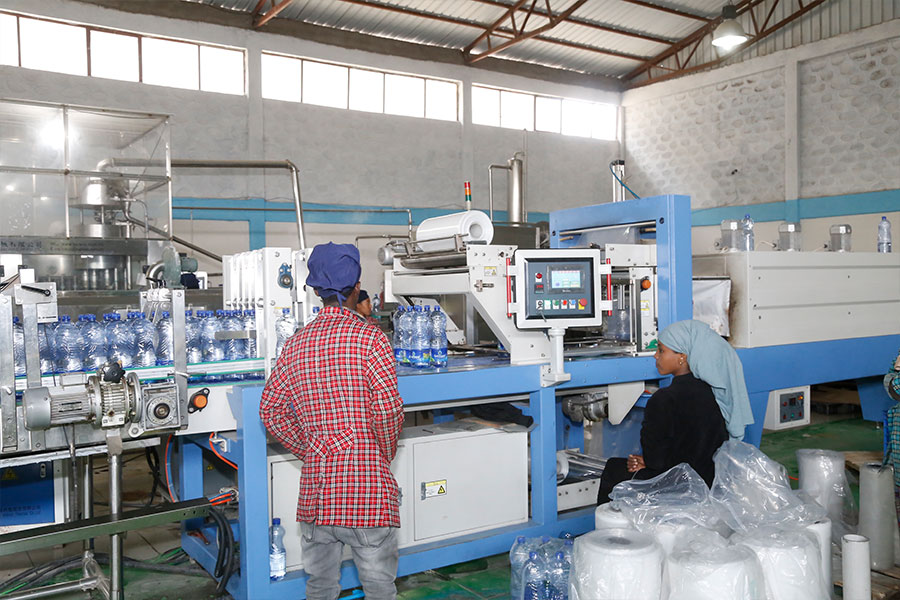
Fortune News | Jul 03,2021
Federal officials are moving forward with a belated initiative to form a regulatory body tasked with supervising a national credit scheme that facilitates loans for farmers, unions, and agro-processors using receipts for commodities they keep at warehouses.
It has been 17 years since laws were introduced to regulate a warehouse receipt system and nearly two years since a bill that governs the scheme's implementation was legislated. Nonetheless, the initiative has remained on the back burner.
Two months ago, a team from the Ministry of Trade & Regional Integration (MTRI) launched a pilot programme to supervise the warehouse scheme. It will continue until a federal regulatory body is established in August, according to Tarekegn Shibeshi, who heads the team at the Ministry. A committee comprising seven officials of the Ministry has been formed to hire staff for the proposed agency, including a director.
The regulator will have an advisory board composed of representatives from the ministries of Trade, Industry, and Agriculture; the central bank; the Ethiopian Standards Agency; the Ethiopian Bankers' Association, an industry lobby group chaired by Abie Sano, president of the Commercial Bank of Ethiopia. The process to establish the agency is expected to wrap up in three months, at which time officials hope to scale up the warehouse scheme, Tarekegn told Fortune. It would allow smallholder farmers, unions, and agro-processors to access loans up to 70pc of the value of the commodities they store at warehouses.
Only four crops, including teff, are eligible for use as collateral.
Last year, eight commercial banks inked agreements with the Trade Ministry to facilitate the credit scheme. However, only three – the state-owned Commercial Bank of Ethiopia (CBE), Awash Bank, and the Cooperative Bank of Oromia – are actively engaged. The Ministry plans to disburse 325 million Br in loans during the pilot period, according to Tarekegn.
Two unions and four agro-processors have thus far received 75 million Br in short-term loans against collateral of 41,000qtl of grain.
Incorporated nine years ago, Abas & Mahari Flour Factory was the first to receive credit under the warehouse scheme. The factory, which has an annual turnover of 100 million Br, operates with a workforce of 84 in Debre Markos town, the Amhara Regional State. It received 12 million Br in loans against collateral of 14,000qtl of wheat.
“We needed the money to cover operating costs,” said Mahari Adane, general manager.
The factory is eligible for 31 million Br in credit using the wheat it stored at one of 600 authorised warehouses in the country. The CBE offers a 14pc interest rate on the loans. Other unions and agro-processors are accessing credit, disclosed Melkam Belete, director of small and medium loans at the Bank.
The regulatory body will be in charge of issuing certificates of competency to agricultural product inspectors, who will be entrusted with assessing the quality and quantity of commodities stored at the warehouses. Experts at the Trade Ministry are conducting the certification work.
The Ethiopian Commodity Exchange (ECX) introduced a similar warehouse receipt scheme last year. Unions and farmers have begun to access collateralised credit against commodities stored at one of 62 warehouses operated by the Exchange. Four months ago, Abay Bank became the first financial institution to advance 50 million Br in short-term loans to Merkeb and Damot cooperative unions under the ECX scheme.
Although 13 commodities are traded on the ECX floor, soybean, chickpeas, and maise remain the only crops eligible for use as collateral.
Experts observe that although the initiatives are a step in the right direction, the government's inability to implement the scheme at full scale and the disorganised nature of unions and cooperatives remain barriers. Limited capacity and the absence of a skilled workforce deter unions and cooperatives from borrowing using agricultural produce as collateral, argues Arega Shumetie (PhD), a senior researcher at the Ethiopian Economics Association (EEA).
“They're not audited properly either," he said.
Arega, who has previously researched the performances of various unions and cooperatives, observed those operating in the Oromia Regional State are better prepared to benefit from the scheme.
“Some have even started to export on their own," he said.
PUBLISHED ON
May 28,2022 [ VOL
23 , NO
1152]

Fortune News | Jul 03,2021

Fineline | Mar 16,2019

Fineline | Sep 19,2020

Agenda | Apr 02,2022

Fortune News | Jun 20,2025


My Opinion | Dec 19,2021

Featured | Sep 11,2020

Exclusive Interviews | Oct 09,2021

Radar | Jun 03,2023

Dec 22 , 2024 . By TIZITA SHEWAFERAW
Charged with transforming colossal state-owned enterprises into modern and competitiv...

Aug 18 , 2024 . By AKSAH ITALO
Although predictable Yonas Zerihun's job in the ride-hailing service is not immune to...

Jul 28 , 2024 . By TIZITA SHEWAFERAW
Unhabitual, perhaps too many, Samuel Gebreyohannes, 38, used to occasionally enjoy a couple of beers at breakfast. However, he recently swit...

Jul 13 , 2024 . By AKSAH ITALO
Investors who rely on tractors, trucks, and field vehicles for commuting, transporting commodities, and f...

Nov 1 , 2025
The National Bank of Ethiopia (NBE) issued a statement two weeks ago that appeared to...

Oct 25 , 2025
The regulatory machinery is on overdrive. In only two years, no fewer than 35 new pro...

Oct 18 , 2025
The political establishment, notably the ruling party and its top brass, has become p...

Oct 11 , 2025
Ladislas Farago, a roving Associated Press (AP) correspondent, arrived in Ethiopia in...